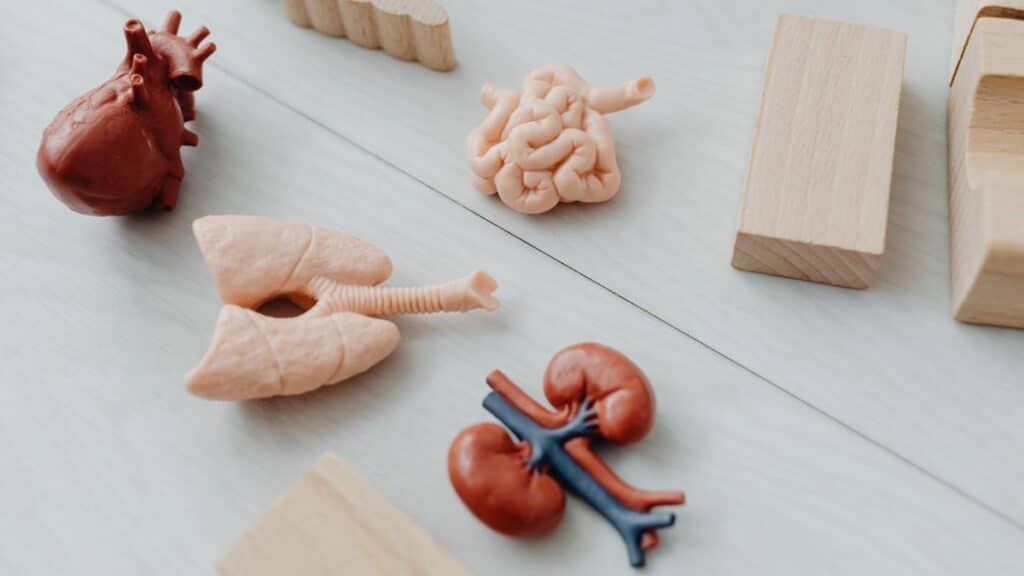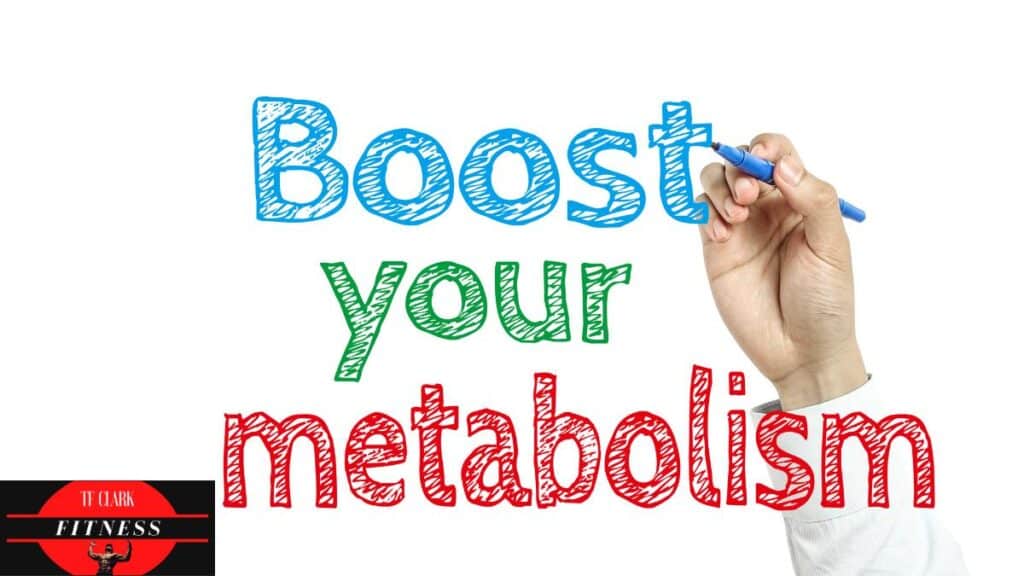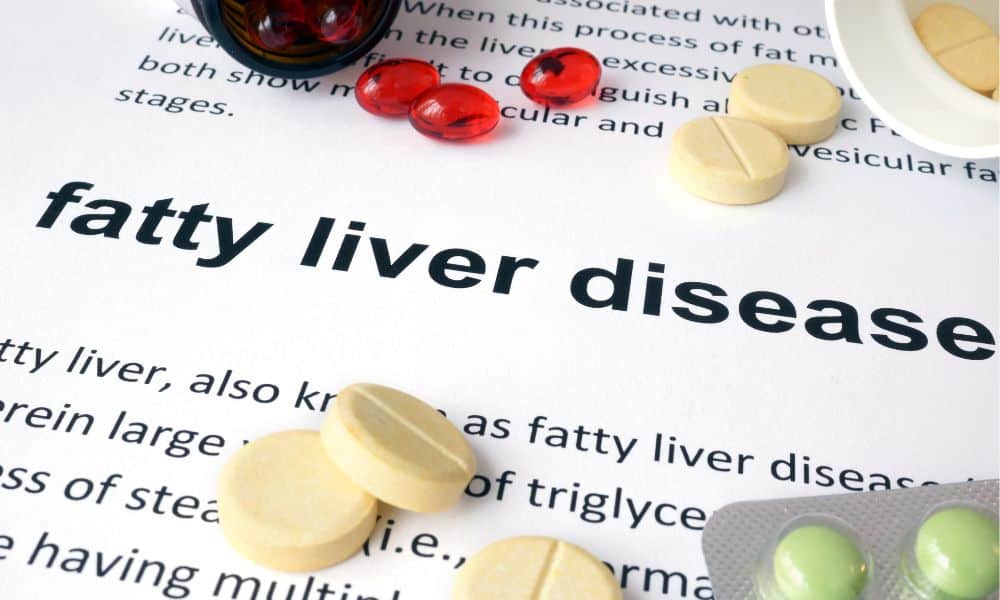Metabolism is a term that echoes through the realms of fitness, health, and nutrition, often surrounded by a cloud of myths and misconceptions. At its core, metabolism is the complex biochemical process by which your body converts food and drinks into energy. This energy is vital for active pursuits like running and jumping and for unseen functions such as circulating blood, growing and repairing cells, and adjusting hormone levels to meet your body’s needs. Your metabolism is the engine that keeps you alive, operating 24/7, even when you’re at rest.
Your metabolism plays a pivotal role in your health and fitness, acting as the cornerstone of how your body utilizes energy derived from food. It’s a complex network of hormones and enzymes that convert food into fuel and affect how efficiently it is used. Understanding the impact of metabolism on health and fitness can empower you to make informed decisions that enhance your well-being and athletic performance.
The Impact of Metabolism on Health
Weight Management: Metabolism is at the heart of weight management. A faster or more efficient metabolic rate means your body burns calories quicker, which can help prevent weight gain. Conversely, a slower metabolism can make it more challenging to lose weight, as your body requires fewer calories to maintain its basic functions.
Energy Levels: The efficiency of your metabolism also determines your energy levels. An optimized metabolism ensures a steady conversion of food into energy, energizing you throughout the day. If your metabolism is sluggish, you might experience fatigue more easily, as your body is slower to convert food into the energy you need.
Hormonal Balance: Metabolism influences and is influenced by hormonal balance. Thyroid hormones, in particular, play a significant role in regulating metabolic rate. Imbalances in these hormones can lead to metabolic disorders, affecting your overall health and energy levels.
Risk of Chronic Diseases: An inefficient metabolism can increase the risk of developing chronic diseases such as type 2 diabetes, heart disease, and obesity. These conditions are often linked to metabolic syndrome, a cluster of symptoms including high blood pressure, high blood sugar, excess body fat around the waist, and abnormal cholesterol levels.
The Impact of Metabolism on Fitness
Physical Performance: Your metabolic rate determines how quickly your body can convert nutrients into energy during physical activity. A higher metabolic rate can enhance endurance and strength, allowing you to perform better in aerobic and anaerobic exercises.
Muscle Building and Recovery: Metabolism affects muscle growth and repair. Protein synthesis, a key component of muscle building, is part of your metabolic processes. Efficient metabolism helps build muscle mass and recover more quickly from workouts.
In conclusion, metabolism significantly influences your health and fitness, affecting everything from weight management to energy levels and physical performance. Adopting lifestyle habits supporting metabolic health can enhance your well-being and achieve your fitness goals.

The Components of Metabolism
Metabolism comprises two intertwined processes: catabolism and anabolism. Catabolism is the breakdown of molecules to obtain energy, while anabolism is the synthesis of all compounds the cells need, utilizing the energy harnessed by catabolism. Together, these processes ensure that your body remains functional and healthy.
The liver, heart, kidneys, and brain regulate metabolism, each contributing uniquely to how your body processes energy, nutrients, and waste. These four organs account for 51% of your metabolism despite accounting for 6% of your body weight. Understanding the interplay between these organs and metabolism offers insights into maintaining optimal health and preventing metabolic disorders.
Liver: The Metabolic Powerhouse
The liver is central to metabolic processes, performing over 500 vital functions that support digestion, energy storage, and toxin removal. It regulates blood sugar levels by converting excess glucose into glycogen for storage and releasing it back into the bloodstream when needed. The liver also metabolizes fats and proteins, synthesizes cholesterol and triglycerides, and produces bile, essential for fat digestion and absorption. Its role in detoxifying the blood and breaking down substances like alcohol and medications further impacts metabolic efficiency.
Heart: Circulation and Energy Delivery
While the heart’s primary function is to pump blood throughout the body, its connection to metabolism is by delivering oxygen and nutrients essential for metabolic reactions. The heart ensures active tissues receive the blood supply needed for energy production, especially during exercise. Additionally, the heart rate increases in response to metabolic demands, such as during physical activity, to ensure that energy production meets the body’s needs. A healthy heart supports an efficient metabolic rate by optimizing the delivery of essential components for metabolism.
Kidneys: Waste Removal and Electrolyte Balance
The kidneys maintain overall metabolic balance by filtering blood and removing waste products and excess substances in the urine. They are critical in regulating blood pressure, electrolyte balance, and red blood cell production. By excreting metabolic waste and balancing electrolytes, the kidneys ensure that the body’s biochemical environment is optimal for metabolic processes. They also contribute to metabolism by activating vitamin D, which helps regulate calcium metabolism, essential for bone health and metabolic functions.
Brain: The Metabolic Regulator
The brain is the command center for metabolic regulation, controlling appetite, energy expenditure, and the distribution of energy resources. It receives and interprets signals from hormones such as insulin (related to blood sugar levels) and leptin (related to fat storage) to regulate food intake and energy balance. The hypothalamus, a small region in the brain, plays a key role in this regulatory process, influencing metabolism, body temperature, and the sleep-wake cycle. The brain’s regulation of stress through the production of cortisol can also impact metabolic processes, affecting how the body stores and uses energy.
Interconnected Impact on Metabolism
- Synergistic Functioning: These organs work in concert to maintain metabolic homeostasis. For instance, the liver processes nutrients that the heart delivers through the bloodstream, the kidneys remove the byproducts of these metabolic processes, and the brain regulates the overall demand and distribution of resources.
- Metabolic Health: Dysfunction in any of these organs can lead to metabolic disorders. For example, liver diseases can impair glucose and lipid metabolism, heart diseases can affect circulatory efficiency and energy delivery, kidney disorders can disrupt electrolyte balance and waste removal, and neurological conditions can alter metabolic regulation and energy balance.
- Lifestyle Factors: Diet, exercise, hydration, and sleep quality can significantly impact the health and function of these organs, thereby influencing metabolism. A balanced diet supports liver function, regular exercise strengthens the heart, adequate water intake aids kidney function, and sufficient sleep helps regulate brain activities.
In summary, the liver, heart, kidneys, and brain are integral to maintaining a balanced and efficient metabolism. Their health and proper functioning are essential for energy production, nutrient processing, waste removal, and overall metabolic regulation. Understanding their roles underscores the importance of a holistic approach to health that supports all these vital organs.

Factors Influencing Metabolism
Several factors contribute to the speed and efficiency of your metabolic engine:
- Genetics: Just as you inherit physical traits from your parents, your metabolic rate is also influenced by genetics. This explains why some people eat a lot without gaining weight while others gain weight more easily.
- Age: Metabolism naturally slows down as you age due to the loss of muscle mass and other physiological changes.
- Muscle Mass: Muscle tissue is more metabolically active than fat tissue. This means the more muscle you have, the more calories you burn, even at rest.
- Physical Activity: Regular exercise boosts your metabolism by building muscle and prompting your body to burn more calories.
- Hormonal Factors: Hormones play a significant role in regulating your metabolism. Thyroid issues, for example, can significantly slow down metabolic processes.
- Diet: What, when, and how you eat can influence your metabolic rate. For instance, eating protein has been shown to boost metabolism temporarily due to its high thermic effect.
Metabolism Myths Debunked
Myth 1: Slim people have a faster metabolism. Not necessarily. Metabolic rate is influenced by body composition, not just body size. A muscular person may have a higher metabolic rate than a slim person with less muscle mass.
Myth 2: Starving speeds up metabolism. The opposite is true. Eating too little can cause your body to conserve energy, slowing your metabolism.
Myth 3: All calories are metabolized the same way. Different nutrients go through different biochemical pathways. For example, protein can increase your metabolic rate more than fats or carbohydrates.
Boosting Your Metabolism
While you can’t drastically change your metabolism, there are ways to optimize it:
- Build Muscle: Use strength training to increase muscle mass and boost your resting metabolic rate.
- Stay Hydrated: Water is essential for processing calories. Even mild dehydration can slow down metabolism.
- Eat Regularly: Consistent, nutrient-rich meals can keep your metabolism more active than sporadic eating patterns.
- Get Enough Sleep: Lack of sleep can negatively affect your metabolism and is linked to weight gain.

Exercise and Metabolism
Exercises that boost or improve your metabolism increase your muscle mass, enhance your cardiovascular efficiency, and elevate your energy expenditure during and after the workout. Here are several types of exercises known for their metabolic-boosting benefits:
1. High-Intensity Interval Training (HIIT)
- How It Boosts Metabolism: HIIT involves short bursts of intense exercise followed by rest or low-intensity periods. This type of training can significantly increase your metabolic rate for hours after the workout, a phenomenon known as excess post-exercise oxygen consumption (EPOC).
- Example Workouts: Sprint intervals, Tabata (20 seconds of intense work followed by 10 seconds of rest for 4 minutes), and circuit training that combines cardio with strength exercises.
2. Strength Training
- How It Boosts Metabolism: Building muscle mass through strength training is crucial for boosting resting metabolic rate (RMR), as muscle tissue burns more calories at rest than fat tissue. Increasing your muscle mass means your body uses more energy even when not exercising.
- Example Workouts: Weightlifting, bodyweight exercises (like push-ups, pull-ups, and squats), and resistance band exercises.
3. Compound Movements
- How It Boosts Metabolism: Exercises that work multiple muscle groups simultaneously (compound movements) are more efficient at burning calories and improving metabolic rate. They require more energy to perform and lead to greater EPOC.
- Example Workouts: Deadlifts, bench presses, squats, and lunges.
4. Aerobic Exercise
- How It Boosts Metabolism: Regular aerobic exercise improves cardiovascular health and increases overall calorie burn during and after exercise. Consistent aerobic exercise can also help improve your body’s insulin sensitivity, which affects how efficiently your body uses energy.
- Example Workouts: Running, cycling, swimming, and brisk walking.
5. Plyometrics
- How It Boosts Metabolism: Plyometric exercises involve explosive movements that improve strength, speed, and power. These high-intensity movements can significantly boost your calorie burn during and after workouts.
- Example Workouts: Jump squats, box jumps, burpees, and clap push-ups.
6. Core Exercises
- How It Boosts Metabolism: While core exercises alone may not burn as many calories as other types of exercise, strengthening your core improves your stability and ability to perform other metabolic-boosting exercises more effectively.
- Example Workouts: Planks, Russian twists, and medicine ball slams.
7. Yoga and Pilates
- How It Boosts Metabolism: While not as intense as HIIT or strength training, yoga and Pilates improve flexibility, strength, and muscle tone. Certain styles of yoga, like power yoga, can also offer a moderate metabolic boost.
- Example Workouts: Power yoga, Vinyasa flow, and Pilates mat exercises.
Incorporating Metabolic-Boosting Exercises into Your Routine
To maximize the metabolic benefits, consider incorporating a mix of these exercises into your weekly fitness routine. Aim for at least 150 minutes of moderate aerobic activity or 75 minutes of vigorous activity per week, along with muscle-strengthening activities on two or more days per week, as health authorities recommend.
Remember, consistency is key to seeing results, not only in terms of metabolism but also in overall health and fitness. Always consult a healthcare provider or a fitness professional before starting any new exercise program, especially if you have existing health conditions.

Water and Metabolism
Adequate hydration is fundamental to maintaining and potentially boosting your metabolism, playing a crucial role in various metabolic processes. Water is essential for nearly every function within the body, including digestion, nutrient absorption, and energy production. Here’s how staying properly hydrated can positively impact your metabolism:
Enhances Caloric Burn
Drinking water can temporarily boost your metabolism, leading to an increase in calorie burning. Studies have shown that drinking about 17 ounces (500 milliliters) of water can increase metabolic rate by 10-30% for about an hour. This phenomenon, known as water-induced thermogenesis, suggests that consuming cold water may further enhance this effect, as the body expends energy to heat the water to body temperature.
Supports Cellular Hydration and Function
Water is crucial for the optimal function of mitochondria, the powerhouse of cells, where calories are converted into energy. Adequate hydration ensures that these cellular processes are efficient, supporting overall metabolic health and energy levels.
Aids in Digestion and Nutrient Absorption
Water is essential for proper digestion. It helps break down food so that your body can absorb the nutrients. Efficient digestion and nutrient absorption are vital for maintaining a healthy metabolism, as they ensure your body gets the necessary components it needs to function correctly.
Facilitates Detoxification and Waste Removal
The kidneys play a significant role in filtering waste from your blood and removing it through urine. Adequate hydration is crucial for kidney function, allowing these organs to efficiently remove waste products and excess nutrients, preventing buildup and supporting metabolic processes.
Improves Physical Performance
Hydration is key to optimal physical performance. Even mild dehydration can impair endurance, reduce strength, increase fatigue, and make exercise feel much more challenging. Since regular physical activity is essential for boosting metabolism, staying hydrated can enhance your ability to engage in more intense and longer-duration workouts, further supporting metabolic health.
Regulates Body Temperature
Water plays a vital role in thermoregulation, helping to dissipate heat through perspiration during physical activity. Efficient body temperature regulation ensures energy is used effectively during exercise, supporting a healthy metabolism.
How to Stay Hydrated
- Drink Regularly: Aim for about eight glasses (around 2 liters or half a gallon) of fluids daily, though needs can vary based on activity level, climate, and individual differences.
- Eat Water-Rich Foods: Incorporate fruits and vegetables with high water content into your diet, such as cucumbers, tomatoes, oranges, and watermelons.
- Monitor Hydration Status: Pay attention to your body’s cues. Thirst, dark yellow urine, and dry mouth are signs you need to drink more water.
- Make It a Habit: Carry a water bottle with you, drink a glass of water before each meal, and if you’re not fond of plain water, try adding a slice of lemon or cucumber for flavor.
In summary, adequate hydration is key to maintaining and enhancing metabolic functions. It supports various processes contributing to a healthy metabolism, from increasing caloric burn to efficiently removing waste products. Prioritizing hydration can positively impact your metabolic health, energy levels, and overall well-being.

Food and Metabolism
Boosting or improving your metabolism through diet involves incorporating specific nutrients that can enhance the efficiency of metabolic processes. These nutrients not only support the body’s energy production but also aid in maintaining optimal health. Here’s a look at key nutrients that can positively impact your metabolism:
1. Protein
- Metabolic Impact: Protein has a high thermic effect, requiring more energy for digestion, absorption, and processing than fats and carbohydrates. Consuming adequate protein can increase your metabolic rate by boosting the thermic effect of food (TEF).
- Sources: Lean meats, poultry, fish, eggs, dairy products, legumes, and nuts.
2. Iron, Zinc, and Selenium
- Metabolic Impact: These minerals are crucial for the proper function of the thyroid gland, which regulates metabolism. Iron, zinc, or selenium deficiency can impair thyroid function and decrease metabolic rate.
- Sources:
- Iron: Red meat, poultry, fish, legumes, and fortified cereals.
- Zinc: Meat, shellfish, legumes, seeds, and nuts.
- Selenium: Brazil nuts, seafood, meat, and eggs.
3. B Vitamins
- Metabolic Impact: B vitamins (B1, B2, B3, B5, B6, B7, B9, B12) play a vital role in energy metabolism, helping the body convert food into energy. They are essential for metabolizing carbohydrates, fats, and proteins.
- Sources: Whole grains, meat, eggs, dairy products, legumes, seeds, nuts, and dark, leafy vegetables.
4. Vitamin D
- Metabolic Impact: Vitamin D is linked to metabolic health, including insulin regulation and the health of the thyroid glands. Some studies suggest that vitamin D deficiency is associated with an increased risk of obesity and metabolic syndrome.
- Sources: Fatty fish, fish liver oils, fortified foods, and sunlight exposure.
5. Magnesium
- Metabolic Impact: Magnesium is involved in over 300 enzymatic reactions, including those related to energy metabolism. Adequate magnesium intake is essential for glucose metabolism, energy production, and protein synthesis.
- Sources: Leafy green vegetables, nuts, seeds, legumes, and whole grains.
6. Calcium
- Metabolic Impact: Calcium plays a role in regulating energy metabolism and may help reduce body fat. It influences how fat is processed and stored by the body.
- Sources: Dairy products, fortified plant-based milks, leafy green vegetables, and almonds.
7. Omega-3 Fatty Acids
- Metabolic Impact: Omega-3s can increase metabolic rate and fat burning by enhancing enzyme activity in fat metabolism. They may also reduce inflammation linked to obesity and metabolic diseases.
- Sources: Fatty fish (such as salmon, mackerel, and sardines), flaxseeds, chia seeds, and walnuts.
8. Antioxidants
- Metabolic Impact: Antioxidants like vitamin C, E, and beta-carotene can combat oxidative stress, potentially improving metabolic health and preventing metabolic syndrome.
- Sources: Fruits, vegetables, nuts, and seeds.
9. Fiber
- Metabolic Impact: High-fiber foods can boost metabolism by improving gut health and insulin sensitivity. Fiber-rich foods also tend to be more filling, which can help with weight management.
- Sources: Whole grains, fruits, vegetables, legumes, nuts, and seeds.
Incorporating these nutrients into your diet can support and enhance metabolic processes, contributing to overall health and well-being. However, it’s important to consume a balanced diet that includes a variety of nutrients to meet all your metabolic needs.

Sleep and Metabolism
Adequate sleep is crucial in maintaining and potentially boosting your metabolism and supporting overall metabolic health. While individual sleep needs can vary, most adults require between 7 to 9 hours of sleep per night, according to the National Sleep Foundation. Here’s how getting enough sleep can impact your metabolism and why it’s an essential component of a healthy lifestyle.
The Relationship Between Sleep and Metabolism
Regulation of Hormones: Sleep influences the balance of several metabolism-related hormones, including insulin, ghrelin, and leptin. Insulin regulates blood sugar levels, and insufficient sleep can lead to insulin resistance, a condition where the body doesn’t use insulin effectively, increasing the risk for type 2 diabetes. Ghrelin and leptin control feelings of hunger and fullness; lack of sleep can increase and decrease ghrelin levels, leading to increased appetite and potential weight gain.
Energy Expenditure: During sleep, the body’s energy expenditure decreases, but adequate sleep supports a healthy resting metabolic rate (RMR). RMR refers to the number of calories your body burns while at rest, and it’s influenced by muscle mass, age, body size, and genetics. Disrupted sleep patterns can lower RMR, reducing the number of calories burned and potentially leading to weight gain.
Recovery and Repair: Sleep is a time for the body to repair and regenerate tissues, including muscle repair after exercise. This recovery process is crucial for maintaining muscle mass and supporting a healthy metabolism. Growth hormone, which plays a key role in tissue growth and muscle repair, is primarily secreted during deep sleep.
Impact on Physical Activity: Adequate sleep is essential for energy levels and physical performance. When well-rested, you’re more likely to engage in physical activity, boosting your metabolism. Conversely, sleep deprivation can lead to decreased motivation for exercise and reduced endurance, negatively impacting your metabolic rate over time.
Tips for Improving Sleep Quality
- Establish a Regular Sleep Schedule: Try to go to bed and wake up simultaneously every day, even on weekends, to regulate your body’s internal clock.
- Create a Restful Environment: Ensure your bedroom is quiet, dark, and at a comfortable temperature. Consider using earplugs, eye shades, or white noise machines if necessary.
- Limit Exposure to Screens Before Bed: The blue light emitted by phones, tablets, and computers can interfere with your ability to fall asleep. Try to avoid screens at least one hour before bedtime.
- Mind Your Diet: Avoid large meals, caffeine, and alcohol close to bedtime, as they can disrupt sleep.
- Relax Before Bed: Develop a relaxing bedtime routine to help signal to your body that it’s time to wind down. This could include reading, taking a warm bath, or practicing relaxation exercises.
In summary, adequate sleep is a cornerstone of metabolic health, influencing hormone regulation, energy expenditure, and overall well-being. By prioritizing sleep and adopting habits that support good sleep hygiene, you can help boost or maintain an efficient metabolism, contributing to better health and fitness outcomes.

Natural Activities (NEAT) and Metabolism
Non-Exercise Activity Thermogenesis (NEAT) refers to the energy expended for everything we do that is not sleeping, eating, or sports-like exercise. It includes the activities of daily living such as walking to work, typing, performing yard work, undertaking agricultural tasks, and fidgeting. NEAT can significantly impact your daily caloric burn and overall metabolism, making it a crucial component of weight management and metabolic health. Here’s how NEAT can boost or improve your metabolism:
Increases Caloric Expenditure
The primary way NEAT boosts metabolism is by increasing the total number of calories burned throughout the day. Unlike planned exercise sessions, NEAT activities can accumulate more subtly throughout your daily routine, potentially significantly increasing total energy expenditure. For some individuals, especially those with highly active jobs or lifestyles, NEAT can contribute more to daily caloric burn than conventional exercise.
Enhances Metabolic Flexibility
Metabolic flexibility is the body’s ability to switch between burning carbohydrates and fats efficiently, depending on availability and demand. As encouraged by NEAT, regular movement throughout the day can improve insulin sensitivity and the body’s ability to utilize different fuel sources effectively. This adaptability is a key marker of metabolic health and can help prevent metabolic syndrome and type 2 diabetes.
Supports Weight Management
By increasing the total energy expended daily, NEAT can play a significant role in weight management and the prevention of weight gain. This is particularly important in today’s sedentary lifestyle, where sitting for prolonged periods has become the norm. Incorporating more NEAT activities into your day can counteract the metabolic slowdown associated with sitting, aiding in weight control and obesity prevention.
Improves Cardiovascular Health
Regular low-intensity activities, which contribute to NEAT, can have cardiovascular benefits by promoting blood flow and improving heart health. While not as intense as structured cardiovascular exercise, these activities help maintain a baseline of fitness that supports heart function and overall health.
Reduces the Risk of Metabolic Diseases
Increased NEAT has been associated with lower risks of metabolic diseases, including metabolic syndrome and type 2 diabetes. By enhancing insulin sensitivity and contributing to a healthier body weight, NEAT activities can protect against these conditions.
Strategies to Increase NEAT
- Stand More: Use a standing desk or take frequent breaks to stand and stretch if you work at a desk job.
- Take the Stairs: Opt for stairs over elevators whenever possible to increase your daily step count and energy expenditure.
- Walk or Bike for Short Trips: Choose walking or biking over driving for short distances to incorporate more physical activity into your day.
- Incorporate Movement into Leisure Time: Stand, walk, or even pace while talking on the phone, watching TV, or reading.
- Do Household Chores: Cleaning, gardening, and DIY projects can significantly increase your NEAT.
In conclusion, NEAT can substantially boost metabolism by increasing daily caloric expenditure, improving metabolic flexibility, and supporting weight management. You can leverage NEAT to enhance your metabolic health and overall well-being by making simple adjustments to increase daily activity.
Conclusion
Your metabolism is a delicate, complex system influenced by many factors. Understanding how it works can help you make informed diet, exercise, and lifestyle decisions that support your metabolic health. Remember, the goal is not just to speed up your metabolism but to maintain its balance and efficiency for overall well-being.




